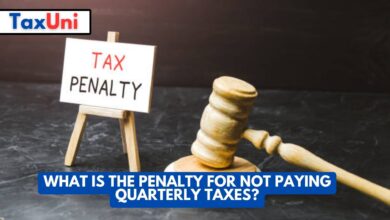Utah State Income Tax
Utah's state income tax is levied on a variety of sources. These include wages, investment income, and retirement income. The tax is also imposed on capital gains and dividends.

Utah state income tax laws require residents to pay a flat rate of 5% on their gross earnings. This is significantly lower than the federal system, which has multiple rates based on a person’s income level. However, the Beehive State offers various deductions and exemptions to reduce the amount of taxes owed. In Utah, investment income, such as dividends and capital gains, is taxable. In addition, retirement income, such as social security benefits, pensions, and annuities, is also taxable. Rental income is also taxable in Utah, but several tax credits are available to offset this tax.
Businesses that sell taxable goods or services in Utah must register with the state and collect sales tax on their customers’ purchases. They must then remit the collected taxes to the state and file timely returns. They must also keep excellent records to avoid penalties and interest charges. Moreover, Utah is an active participant in the Streamlined Sales and Use Tax Agreement (SSUTA) and requires remote sellers to be registered. These requirements are designed to reduce identity theft refund fraud and help the state manage the collection of sales and use taxes.
Utah State Income Tax Due Dates
If you live in Utah or report income from a Utah source, you must file a state tax return. This includes individuals, fiduciaries, trusts, and estates. If you are filing an individual return and you owe state tax, you must pay the amount by April 15 or the next business day if the due date falls on a weekend or holiday. There is no need to submit an extension form for those who do not owe any state taxes. However, you must still file by the original due date or be subject to penalties and interest.
To combat identity theft refund fraud, the Utah State Tax Commission enhanced its return processing. Returns are flagged and required to undergo a security verification process before they can be processed. This requires taxpayers to follow the instructions on an online verification letter or send documentation by mail. This helps protect the tax system’s integrity and ensures that refunds are only issued to legitimate recipients. This also helps reduce the impact of fraud on state and local governments.

Utah State Income Tax Payment Plans
Getting hit with a tax bill you can’t pay is one of the worst things that can happen. But the state of Utah doesn’t want you to suffer like this, and it can work with you to get you on a Utah tax payment plan.
First, you’ll need to ensure that all of your returns are up-to-date before the state can approve your request for a payment plan. Failure to do this may result in additional fees, a tax lien, or even property seizure. To avoid this, make sure that you file all of your returns on time.
Contacting the state to ask for a tax payment plan can be intimidating, especially if you’re dealing with back taxes. But a professional tax firm can help you resolve your debt once and for all.





